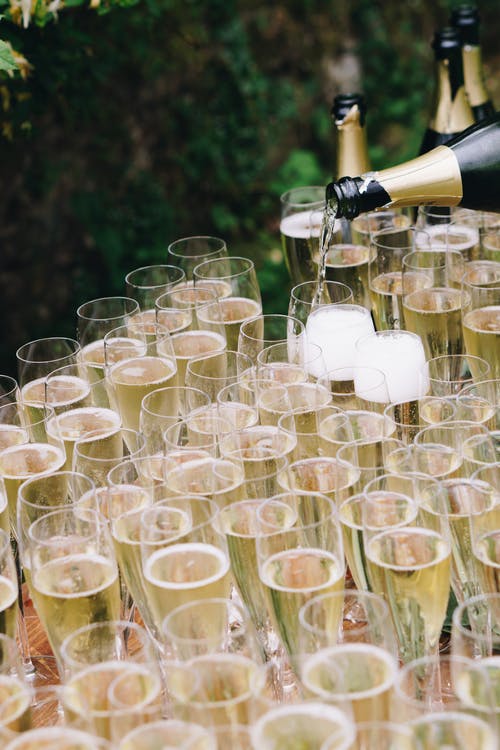Posted: Apr 06, 2022

There's a lot that isn't common knowledge about champagne, and skipping the champagne flute is just the tip of the iceberg. For starters, to be officially called champagne, sparkling white wine must meet a number of specific criteria, according to The Comité Champagne, a trade association representing official growers and producers. Rules governing the making of champagne cover specific techniques related to planting and viticulture all the way up to labeling and packaging. Only when these rules are followed is a wine eligible for official designation by the Appellation d'Origine Controlée (AOC).
With all of these strict rules, we may think of champagne as the pinnacle of winemaking, but at one point, the bubbly tipple we sip on New Year's Eve was considered to be the product of a process gone awry.
Official champagne came about by accident, and at first, it wasn't seen as a happy accident. According to Smithsonian Magazine, temperatures dropped suddenly during one winter in the late 1400s, disrupting the winemaking process of monks in the Champagne region of France. The lower temperatures abruptly halted the fermentation process in bottles of stored wines. When warmer temperatures arrived, fermentation started again, creating a higher-than-expected level of carbon dioxide. The resulting bottles of fizzy wines kept exploding in wine cellars and for many years after, fizzy wine was seen as a winemaking faux pas.
In 1668, the Catholic Church had had enough of this winemaking inefficiency, and it designated a monk called Dom Pierre Pérignon to address the problem. However, the Royal Court at Versailles had grown to enjoy the fizzy wine and had other ideas. By the end of the 17th century, Pérignon was charged with making champagne even more bubbly instead.
It turns out that, at least where champagne is involved, perceptions can change, and things aren't always what they seem. For example, good champagne is often associated with wealth, but expert Peretti says price doesn't always equal quality. "The 'best' champagne is the champagne you like best," he says, "and that you share with friends and family."
By Brett Llenos Smith
04-05-2022
Source and complete article by: tastingtable.com
Go-Wine's mission is to organize food and beverage information and make it universally accessible and beneficial. These are the benefits of sharing your article in Go-Wine.com


The Wine Thief Bistro & Specialty Wines is a locally owned small business in downtown Frankfort, IL offering world class wines in a relaxed, casual gathering spot for friends and family. Offering world class virtual tastings and touchless carryout.
https://www.twtwineclub.com/aboutus
Go-Wine 25 Great Wineries in US selection prioritizes quality, value and availability.
www.go-wine.com/great-wineries-in-america
Tasting wine is a nice experience, but visiting the places in which wine is made is a magic moment. Available in New York City for touchless pickup.